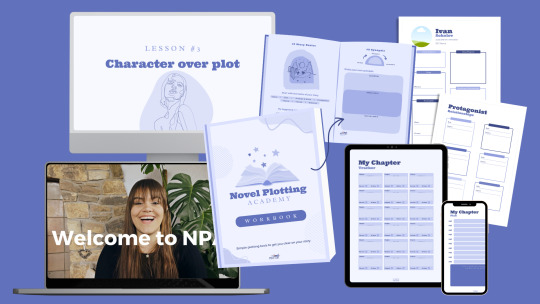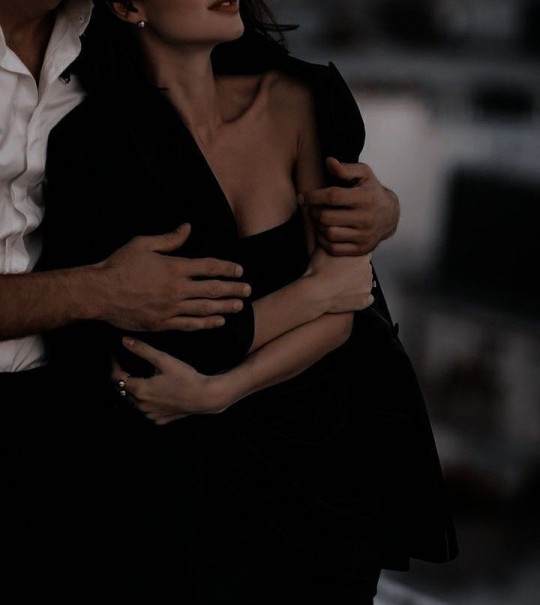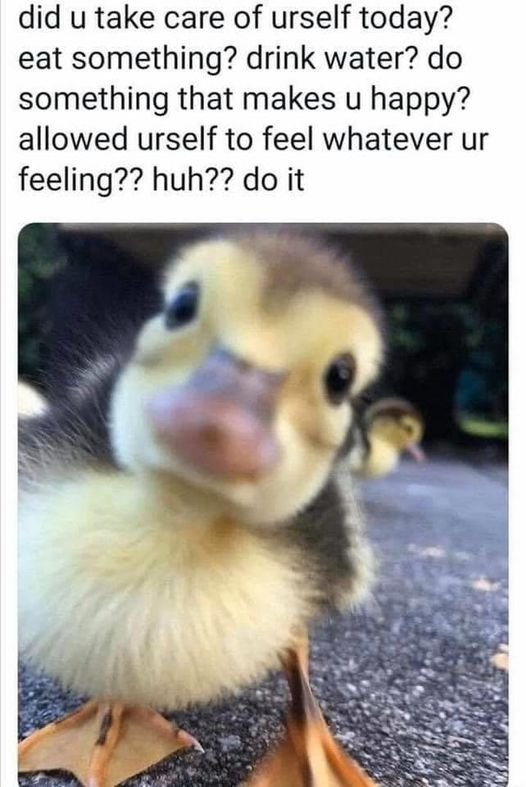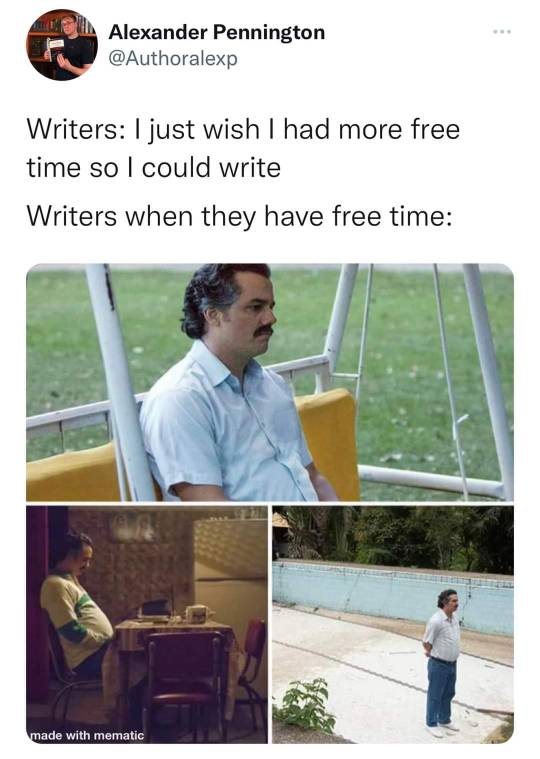Text
5 Elements of great storytelling
We all want to be great writers, but what makes a writer great?
Here are 5 elements to work towards that I believe are the key to great storytelling 👇
📌 Immersive style
Your narrative voice and writing style are something you’ll get better at the more you write. Strive to have a style that immerses your reader into the story and makes them forget they’re even reading.
📌 Relatable characters
Your characters are the heart of your story. Make sure your readers can find some common ground in the feelings your characters experience, the issues they have to face, and the flaws they have to overcome.
📌 Reader trust
Trust your readers to put two and two together. Don’t give them all the information you think they might need. Make them work for it and trust that they’ll figure it out. Instead of giving them “4”, give them “2+2”.
📌 Clear theme
Be intentional with your theme. Know what meaning you’re exploring and what question you’re trying to answer right from the start. Your story will be that much stronger when you’re certain of its message.
📌 Dramatic Development
Change makes any good story. Make sure that whatever you set up in the beginning of the book, changes by the end. Then do the same with characters. And the same with each chapter.
Join Novel Plotting Academy for a step-by-step approach to planning your novel, and get all of my plotting tools included!

You get lifetime access to the course and any of its future updates.
237 notes
·
View notes
Text
Ways I develop character relationships in my writing
This is just a small list of things I do to add a little bit of coziness into my writing through my characters! Relationships (both platonic and romantic) are notoriously hard to write, so here are some of my tips!
Characters picking up on each other’s mannerisms
Characters finishing each other’s sentences
When one character trips/falls/slips and their friend(s) make fun of them before helping them up
Inside jokes
When a group is laughing together, characters who immediately look at each other to see if they found it funny also
Friends who can’t keep it together in serious situations when they’re together
Platonic touching (hugging, hand holding, high fives, etc.)
Characters discussing future plans
Intentionally making fun of each other in front of their crush/partner
2K notes
·
View notes
Text
How To Avoid Repeating Information When Writing


Okay, here's the thing: Repeating information is easy, makes the book lengthy and often times loses impact.
There are a few tips to avoid this when you're writing:
➪ REVISING: Obviously, writing and then revising your content, be it first draft or fiftieth, would help. This is the easiest strategy most adopt and to be honest, Revising your drafts is something you're bound to do so if you put in conscious effort you'll realize wherever you're repeating information and can tweak it.
➪ DIALOGUE: Instead of giving the info dump, if you have any characters in the book discuss it, it'll be much more effective and engrossing. For eg:
Instead of having Character A think of how his grandfather passed away, have two of his employees gossip about It to the new intern who's Character B. Get it?
I've emphasized this method for other things as well because personally I find it useful. This is not to say that you shouldn't have the characters think of anything but you should slowly understand which information would be more impactful if delivered as dialogues.
➪ MAKE A SCENE: If instead of in chapter 2 getting to know why Character A lives alone in a mansion by their thoughts, we get this information in chapter 15 wherein Character B asks A about it, do you think it'd make for a good scene?
That's precisely what I mean. Make a Scene of the information you might repeat and deliver it with a stronger 'oomph!' while making relationship between your characters stronger.
If Character B were going to ask them about it anyways, then you can avoid having A think about it and give up the information. However it doesn't mean letting the readers know something before the characters themselves do is a bad thing.
Unless and until you don't want particular information divulged to the other characters and/or your readers, you can turn it into a meaningful scene or use dialogues whenever. This will help you avoid repeating information like pieces of a backstory.
➪PLOTTING: A surefire way to avoid repetition of information In your writing is plotting. To already have a good enough outline with the scenes charted out so you can place information accordingly. However, more often than not it's not possible to remember if you're repeating some information or not. When we get into the flow of writing, we automatically create the scenes.
Plus, being a panster or planster would have you at a disadvantage because unlike the planners you don't go so far as to literally organize every detail.
So now what to do?
Nothing really, just Plot. Create a number line for every chapter but instead of the numbers, add in scenes and what tit bits of info you'll give. And most importantly, avoided info dumps especially at the beginning of the story. Or just wait until you revise the draft and realize wherever you're repeating the information.
The information may seem more fitting in chapter 28 but if you already use it in chapter 1 and then repeat it, it's just more work for the writer and reader.
299 notes
·
View notes
Text
How To Use Dramatic Irony


Dramatic irony is a form of irony. It is both a literary and theatrical device in which the reader or audience knows more than the characters they are following. The characters’ actions have a different meaning for the audience than they do for the actors or characters, and this device often lends itself to tragedy.
>>>
1. Create a more complex, multi-layered narrative by letting different characters know different types or amounts of information. The audience will see how the characters interact with each other and make choices based on the information that they have.
2. Generate interest by allowing the reader to know more than the hero. For example, your hero is waiting for his spouse to arrive, but she was murdered in a previous chapter. The reader is now filled with dread and expectation for what they know is coming: the hero’s shock at the news of his wife’s death.
3. Instead of telling the story from the point-of-view of your hero, consider exploring the point of view of the antagonist of the story. This will give your reader insights that the protagonist does not have, creating dramatic irony and suspense.
4. Build turning points in your story around ironic statements by your characters to emphasize and heighten dramatic irony. For example, in Steven Spielberg’s Jurassic Park, the character of John Hammond repeatedly says he “spared no expense” in building the park. The irony of this statement only becomes clear when things begin to fall apart.
Hope it was helpful and informative! Like, Share and Follow For More!
41 notes
·
View notes
Text
I'm not sure I can express this sentiment strongly enough, but I'm going to try via the medium of large bolded text.
Write what the fuck you want.
Write what makes you happy. Write what makes your soul sing. Write what fucks you up and makes you cry. Write what comforts you. Write what distracts you. Write what you want to read. Write what you want to watch.
Write what you want to dream about tonight.
Write what you can't get enough of. Write what you're completely obsessed with. Write what wakes you up at 4am and drags you out of bed because you can't stop thinking about what your characters are going to do next.
Write what turns you on, if that's your vibe. Write characters you're in love with and characters who inspire you and characters you want to be friends with and characters you fucking hate but oh my god they're so much fun.
Write about things you would sell your soul to do in real life and things you would never do in real life. Write about things that are happening right now and things that happened a thousand years ago and things that might happen in the future and things you wish could happen.
Write to get a publishing deal or to sell your books yourself or not to sell your books at all. Write for your friends or for strangers or for the people who reblog your posts on Tumblr and send you songs that remind them of your characters.
Write for yourself.
Fuck any system that tells you there's only one right way to create or one valid way to share your writing. Your story, the way you tell it, has so much value. Make people smile or piss people off or do both of those things because art is divisive and fascinating and beautiful.
Start writing. Keep writing. And write what the fuck you want.
16K notes
·
View notes
Text
Ways I show romantic feelings between characters (before the confession!)
I'm not big on writing romance, but when I do, I love to show the events and feelings leading up to the big emotional release. Here are a few of the ways I hint at those feelings!
Stealing glances when the other isn't looking
Wondering what the other character might think of a certain outfit/mannerism/activity
Talking about the other character to their friends
Feeling uptight/overly stiff in front of the other character (only in certain scenarios!)
Alternatively (and more commonly), feeling overly at-ease while with the other character
Accidental touches, and then thinking about it for hours or days after
Picking up mannerisms from the other character without realizing it
Wanting to spend an unusual amount of time with the other character
Consuming a piece of media and relating certain characters/scenes to the other character
Feel free to add on with other ideas!
7K notes
·
View notes
Text
Cat’s Writing Tips: Filtering
Welcome back to another Writing Tip Monday with Cat! My name is Cat, and I’ve been a writer for 16 years. I’m not really a professional, but I’m also not a noob, so take this advice with as many grains of salt as you see fit. Today I want to talk about filtering, and no I don’t mean the kind that make it look like you have a giraffe head or a butterfly crown.
Filtering in writing refers to words that filter your experience through the character. Words like saw, felt, thought, watched, looked, decided, touched, etc. In general, filtering is considered weak writing because it typically tells the reader what’s happening rather than showing the reader what is happening. Filtering is an easy enough fix, but it does require you to brush off your description skills. I’ll give some examples.
Filtering: Adrien felt his hands shaking at his sides. (weak)
Not filtering: Adrien’s hands shook at his sides. (stronger)
Filtering: She felt her heart hammering in her chest.
Not filtering: Her heart hammered in her chest.
Filtering: She looked at the boy sitting across the room and saw that his hair was black.
Not filtering: The dark haired boy across the room leaned back in his chair with a yawn.
In general, filtering can easily be fixed by just removing the filter words and literally describe things as if you were that character experiencing them. Pick stronger verbs and lean more into descriptions. This will help make your story more immersive for the reader, for instance the last example I used, you don’t learn much about the boy in the filtering example other than that your character is looking at them and his hair is black. In most cases, it’s understood that your character is seeing/feeling/experiencing these things (unless they’re blind or have their eyes closed). Typically people don’t just walk around in the world with their eyes closed though, so you don’t have to tell us that your character is looking at something. It’s understood. Instead of saying that your character saw a mountain, describe what specifically they are seeing. “Rolling hills climbing to a snowy peak. Jagged rocks jutting along the cliffside. A purple sunrise peeking over the summit.” Get creative. Put yourself in their shoes. In real life, if someone asked you to describe a sunset, you wouldn’t say “I see orange and yellow colors and think they’re very beautiful.” You’d describe it.
You don’t have to get overly flowery with it, but 9/10 times, you do not need filter words, and your writing will be much stronger without them. In very few instances, it’s probably fine, but I typically make it a goal to eliminate as many of them from my writing as possible. Sometimes it is better to tell vs show, but not very often, especially during key moments when you really want to ramp up the tension or really hone in on the character’s experience. This will also help develop your character’s voice within the story (a topic I’ll touch on another day).
If you have any questions about filtering or if you have another writing topic you’d like to see me cover, feel free to let me know! I’ll see you all next Monday with more writing tips ;)
309 notes
·
View notes
Text
4 things all writers should keep in mind
IMPORTANT WRITING REMINDER #1:
Always save your documents, because before you know it, something will happen and you might lose everything you wrote.
IMPORTANT WRITING REMINDER #2:
You won't remember that story idea tomorrow. Write it down.
IMPORTANT WRITING REMINDER #3:
It's very likely that the ''placeholder'' name you give your characters won't be ''just another placeholder'' name. You will grow attached.
IMPORTANT WRITING REMINDER #4:
Don't delete your old documents! No matter how bad you may believe your writing to have been back then, it can be quite fun (and motivating) to look back on your journey, and see how much you've improved.
8K notes
·
View notes
Text
best friends to lovers prompts
going as each other’s ''platonic'' date to a mutual friend’s wedding
agreeing to kiss each other ''just to see what it’s like''
punching the guy who broke your best friend’s heart at [event]
refusing to admit your feelings but making up ridiculous excuses to spend time together
asking your best friend to go to prom with you as ''friends''
''i’m not in love with my best friend'' but everyone can tell you're full of shit
there’s only one bed and we decide to share it, having obviously been waiting for this moment
friends and family think we’re dating because we’re acting like a couple
sharing your first kiss with your best friend
sharing clothes because we're simply that comfortable with each other
accidentally blurting out ''i love you'' during a conversation
''i’ll kiss you right now to prove i don’t feel anything for you'' but the kiss proves the opposite
finding old letters you wrote to each other as kids, reminiscing
is there a reason you're always staring at me in class?
knowing your best friend inside out, everything from their favorite song, to the name of their favorite stuffed animal in second grade
hiding your feelings, not wanting to ruin the friendship, even going as far as avoiding each other completely, but somehow always ending up sharing an intimate moment
choosing each other for a group project, but spending more time making out than working
the first kiss, and the realization of ''it’s always been you''
starting to see each other in a different light
i’m watching you date all these other people, and i don't know what i'm feeling but it's definitely not jealousy
you don't have anyone to go to prom with so i volunteer, but we end up ditching early, and instead go for a drive around town, stopping for fast-food burgers and incredible sights
complimenting your best friend over small things, that realistically only someone who’s in love with that person would notice
that ''oh shit'' moment when the realization hits you
the ''date'' that isn't really a date but feels like one
showing up at each other’s house late at night
the location we always hung out at as kids still holds a very special place in our hearts
family and friends constantly pointing out how compatible you are with each other
one person's dropping hints about their feelings, the other one's completely oblivious
''if we're not married by the age of [age], let's do it''
hearing your best friend say you’re nothing more than friends, and dying a little on the inside, wishing you were more than that
3K notes
·
View notes
Text
A LIST OF SOUNDS/ONOMATOPEIAS FOR WRITERS:
Action
bam (a sudden loud noise/sudden impact)
bang (a loud noise like an explosion or gunshot)
beep (a short high-pitched electronic sound)
biff (a short, sharp movement)
blip (a short, high-pitched electronic sound)
boing (representing the noise of a compressed spring suddenly released)
boom (a loud, deep, resonant sound)
buzz (a low, continuous humming sound)
ching (the sound of metal on metal)
clang (a loud, resonant metallic sound or series of sounds)
clank (a loud, sharp sound or series of sounds)
clap (the act of striking the palms together/an explosive sound)
clatter (a rattling sounds as objects fall or hit each other)
click (a short, sharp sound/a short electronic sound)
clink (a short ringing sound)
crack (a sudden explosive noise)
crackle (rapid succession of slight cracking noises)
crash (a sudden violent noise)
crunch (a muffled or grinding sound made when something is crushed)
ding (a metallic ringing sound)
ding-dong (the sound of a doorbell, like the chiming of a bell)
drip (the action of liquid falling in drops)
honk (a long and loud beep, such as that from a car horn)
jingle (a catchy rhythmic sound/light metallic clinking)
kerplunk (a loud, dull sound or plunk)
knock (to strike a surface noisily in order to attract attention/ sudden short sound caused by a blow)
patter (a repeated light tapping)
pew-pew (a sound made by a laser gun)
ping (a short high-pitched ringing)
pitter-patter (the sound of a rapid succession of light beats or taps)
pop (a light/soft explosive sound)
pow (expressing the sound of a blow or explosion)
rattle (to make a rapid succession of short/sharp knocking sounds)
screech (give a loud, harsh, piercing cry/a lour, harsh, squealing noise)
sizzle (a hissing sound made when food is frying)
slam (a loud and forceful sound caused by something being shut)
slap (a sharp sound made by a forceful blow)
smash (violent breaking of things)
snap (tp break suddenly and completely, typically with a sharp cracking sound)
splash (a sound made by something striking or falling into liquid)
splat (a sound of something soft and wet or heavy striking a surface)
swoosh (the sound produced by a sudden rush of air or liquid)
thud (a dull, heavy sound)
tick (a regular short, sharp sound, especially that made by a clock)
thump (a dull pounding sound)
thunk (a dull, heavy sound, such as that of an object falling)
varoom (a roaring sound made by an engine at a high speed/revving up)
whack (to strike forcefully with a sharp blow)
whir (a low, continuous, regular sound)
whoosh (a sudden rushing movement and sound)
whump (a dull thudding sound)
wham (a forceful strike/impact)
zap (the sound of a sudden burst of energy)
Animal
arf (canine)
bark (canine, seal)
bah-gawk (chicken)
bellow (alligator, deer)
buzz (bee, hornet, fly, mosquito, wasp...)
caw (blackbird, raven, rook...)
chatter (monkey, mouse
cheep (bird)
chickadee-dee (chickadee)
chirp (bird, cricket, grasshopper)
click (crab, dolphin)
cluck (chicken)
cock-a-doodle-doo (rooster)
coo (pigeon)
croak (frog)
cuckoo (cuckoo)
drum (rabbit)
gobble (turkey)
growl (bear, canine, crocodilian, feline...)
grumble (boar)
hee-haw (donkey)
hiss (goose, snake)
honk (goose)
hoot (owl)
howl (canine)
hum (hummingbird)
maa (goat)
moo (cow, wildebeest)
neigh (horse, pony, zebra)
purr (canine)
quack (duck)
ribbit (frog)
roar (bear, feline, gorilla...)
scream (hyena)
screech (bat, eagle)
sing (songbird)
snarl (feline)
snort (pig)
squeak (hampster, mouse, squirrel...)
tlot-tlot (hooves)
trumpet (elephant, swan)
tweet (bird)
wheek (guinea pig)
whine (mosquito)
whinny (horse, pony, zebra)
whistle (bird, whale)
whoop (monkey)
Vocal
achoo/atishoo (the sound of a sneeze)
ahem (clearing throat to attract attention)
argh (expressing annoyance, dismay, embarrassment or frustration)
blech (to express distaste/gagging or retching)
blurt (to speak out suddenly and abruptly)
chomp (vigorous chewing)
cough (expel air from the lungs with a sudden sharp sound)
eek (used to express alarm, horror, or fright)
giggle (to laugh lightly in a nervous or silly manner)
glug (to drink or pour with a hallow gurgling sound)
groan (to make a deep inarticulate sound in response to pain or despair)
growl (a low rumbling noise that expresses discontent)
grunt (a short, deep sound inarticulated when angry, sullen, or lazy)
gulp (to swallow loudly and quickly)
gurgle (a hallow, bubbling sound)
hiccup (an involuntary cough-like noise)
huh (used to express scorn, anger, disbelief, surprise, amusement, or confusion)
hum (to make a steady continuous sound like a bee)
moan (a low prolonged mournful sound expressive of suffering or pleading)
mumble (speaking incoherently, like a sort of whisper)
murmur (to make sounds that are not fully intelligible)
ow (used to express sudden pain)
phew (an exhale of relief)
oops (an exclamation of surprise or of apology, as when someone drops something or makes a mistake)
ouch (an exclamation of sharp sudden pain)
squeal (to make a shrill cry/a sound of complaint or protest)
ugh (used to indicate the sound of a cough or grunt or to express disgust or horror)
yikes (used to show that you are worried, surprised, or shocked)
whimper (to make a low whining plaintive or broken sound)
whoop (a loud cry of joy or excitement/laughter)
whoops (another term for "oops")
4K notes
·
View notes
Text
I am back to working on plot outline, i don't have character names and i'm well aware that if i placeholder it will stick, it's full of "sister" "she" "groom" it's weird as hell but it's getting the job done. I'm so close to being done with the overall plot, my characters basically have full personalities - they're only missing appearances, names, and a little refining.
4 notes
·
View notes
Text
Social experiment: write in the tags the first thing you think of when you see GF and your zodiac sign
71 notes
·
View notes
Text
writing tip: don’t tell us your character’s backstory. don’t tell us what your character is thinking. don’t tell us what your character is doing. don’t tell us anything. the reader should simply look at a blank page and be suddenly overcome with emotion.
162K notes
·
View notes
Text
DESCRIBING THE PHYSICAL ATTRIBUTES OF CHARACTERS:
Body
descriptors; ample, athletic, barrel-chested, beefy, blocky, bony, brawny, buff, burly, chubby, chiseled, coltish, curvy, fat, fit, herculean, hulking, lanky, lean, long, long-legged, lush, medium build, muscular, narrow, overweight, plump, pot-bellied, pudgy, round, skeletal, skinny, slender, slim, stocky, strong, stout, strong, taut, toned, wide.
Eyebrows
descriptors; bushy, dark, faint, furry, long, plucked, raised, seductive, shaved, short, sleek, sparse, thin, unruly.
shape; arched, diagonal, peaked, round, s-shaped, straight.
Ears
shape; attached lobe, broad lobe, narrow, pointed, round, square, sticking-out.
Eyes
colour; albino, blue (azure, baby blue, caribbean blue, cobalt, ice blue, light blue, midnight, ocean blue, sky blue, steel blue, storm blue,) brown (amber, dark brown, chestnut, chocolate, ebony, gold, hazel, honey, light brown, mocha, pale gold, sable, sepia, teakwood, topaz, whiskey,) gray (concrete gray, marble, misty gray, raincloud, satin gray, smoky, sterling, sugar gray), green (aquamarine, emerald, evergreen, forest green, jade green, leaf green, olive, moss green, sea green, teal, vale).
descriptors; bedroom, bright, cat-like, dull, glittering, red-rimmed, sharp, small, squinty, sunken, sparkling, teary.
positioning/shape; almond, close-set, cross, deep-set, downturned, heavy-lidded, hooded, monolid, round, slanted, upturned, wide-set.
Face
descriptors; angular, cat-like, hallow, sculpted, sharp, wolfish.
shape; chubby, diamond, heart-shaped, long, narrow, oblong, oval, rectangle, round, square, thin, triangle.
Facial Hair
beard; chin curtain, classic, circle, ducktail, dutch, french fork, garibaldi, goatee, hipster, neckbeard, old dutch, spade, stubble, verdi, winter.
clean-shaven
Moustache; anchor, brush, english, fu manchu, handlebar, hooked, horseshoe, imperial, lampshade, mistletoe, pencil, toothbrush, walrus.
Sideburns; chin strap, mutton chops.
Hair
colour; blonde (ash blonde, golden blonde, beige, honey, platinum blonde, reddish blonde, strawberry-blonde, sunflower blonde,) brown (amber, butterscotch, caramel, champagne, cool brown, golden brown, chocolate, cinnamon, mahogany,) red (apricot, auburn, copper, ginger, titain-haired,), black (expresso, inky-black, jet black, raven, soft black) grey (charcoal gray, salt-and-pepper, silver, steel gray,), white (bleached, snow-white).
descriptors; bedhead, dull, dry, fine, full, layered, limp, messy, neat, oily, shaggy, shinny, slick, smooth, spiky, tangled, thick, thin, thinning, tousled, wispy, wild, windblown.
length; ankle length, bald, buzzed, collar length, ear length, floor length, hip length, mid-back length, neck length, shaved, shoulder length, waist length.
type; beach waves, bushy, curly, frizzy, natural, permed, puffy, ringlets, spiral, straight, thick, thin, wavy.
Hands; calloused, clammy, delicate, elegant, large, plump, rough, small, smooth, square, sturdy, strong.
Fingernails; acrylic, bitten, chipped, curved, claw-like, dirty, fake, grimy, long, manicured, painted, peeling, pointed, ragged, short, uneven.
Fingers; arthritic, cold, elegant, fat, greasy, knobby, slender, stubby.
Lips/Mouth
colour (lipstick); brown (caramel, coffee, nude, nutmeg,) pink (deep rose, fuchsia, magenta, pale peach, raspberry, rose, ) purple (black cherry, plum, violet, wine,) red (deep red, ruby.)
descriptors; chapped, cracked, dry, full, glossy, lush, narrow, pierced, scabby, small, soft, split, swollen, thin, uneven, wide, wrinkled.
shape; bottom-heavy, bow-turned, cupid’s bow, downturned, oval, pouty, rosebud, sharp, top-heavy.
Nose
descriptors; broad, broken, crooked, dainty, droopy, hooked, long, narrow, pointed, raised, round, short, strong, stubby, thin, turned-up, wide.
shape; button, flared, grecian, hawk, roman.
Skin
descriptors; blemished, bruised, chalky, clear, dewy, dimpled, dirty, dry, flaky, flawless, freckled, glowing, hairy, itchy, lined, oily, pimply, rashy, rough, sagging, satiny, scarred, scratched, smooth, splotchy, spotted, tattooed, uneven, wrinkly.
complexion; black, bronzed, brown, dark, fair, ivory, light, medium, olive, pale, peach, porcelain, rosy, tan, white.
20K notes
·
View notes

